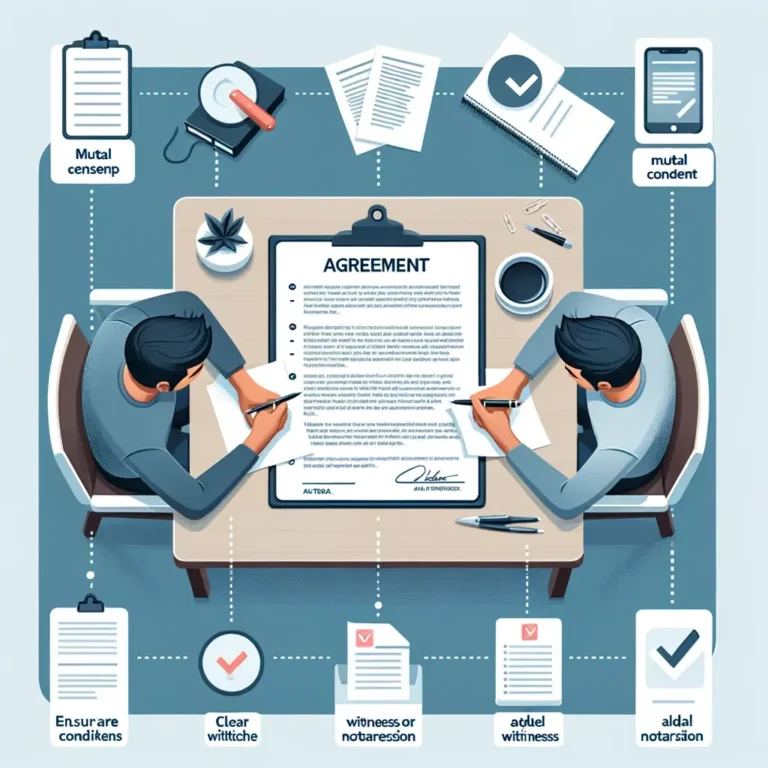When exploring the question, “Is a notarized document legal in court?” it’s important to delve into the nuances that define the legal standing of notarized documents within judicial systems. This query touches on critical aspects of legal procedure, document authentication, and the enforceability of agreements in a court of law. The role of notarization in legal proceedings, while significant, is often misunderstood.
Below, I will further elaborate on these complexities, focusing on general principles applicable in many jurisdictions, including insights relevant to both the United States and India.
Introduction:
The credibility and enforcement of notarized documents within the judicial systems of India and the United States remain areas of significant interest and importance.
As Advocate Vishal Saini, with a profound understanding of the legal intricacies in both jurisdictions, I aim to demystify the concept of notarization and its impact on the legal standing of documents presented in court.
Is A Notarized Document Legal In Court?
Legal Considerations in Court
Notarization is a process designed to deter fraud, where a Notary Public certifies the identity of the signers, their understanding of the document, and their willingness to sign voluntarily. It’s crucial to note, however, that notarization itself does not confer legality or validity on the document’s content but merely attests to the legitimacy of the signatures and the signatories’ capacities.The presence of a notary’s seal and signature on a document does not automatically imbue the document with legal force or make its contents legally binding. Instead, notarization serves as a form of authentication for the signatures on the document, indicating that the parties identified in the document indeed signed it.
Importance of Notary in United States
In the U.S., notarized documents are often considered prima facie evidence in court, meaning that the document is presumed to be authentic unless proven otherwise. This presumption can lend weight to the document’s credibility but does not guarantee its acceptance in every legal situation. The document must still comply with relevant laws and regulations, and its contents must be legally valid and enforceable. For example, a notarized contract involving illegal activities would not be enforceable, despite being notarized.
Importance of Notary in India
In India, the legal standing of notarized documents can vary significantly based on the type of document and the context of its use. While notarization can provide a layer of authenticity to the signatures, certain documents require registration with government authorities to be considered legally valid and enforceable. For instance, property deeds must be registered to have legal effect, regardless of whether they are notarized. The Indian judiciary often looks beyond the notarization to the substance of the document and its adherence to statutory requirements and legal principles.
Practical Advice
For individuals and entities looking to ensure their notarized documents hold legal weight in court, the following practices are advisable:
- Understand the Legal Framework:
Familiarize yourself with the specific legal requirements related to your document. This includes knowing whether notarization, registration, or both are necessary for your document to be considered valid in court. - Ensure Complete and Accurate Execution:
All parties should fully understand the document’s contents and implications before signing. The document should be executed correctly, following all required legal formalities. - Seek Legal Counsel:
Given the complexities surrounding legal documents and their enforcement, consulting with a legal professional can provide valuable insights and help avoid potential pitfalls.
Difference Between Notarized & Registered Agreement
| Feature | Notarized Agreement | Registered Agreement |
|---|---|---|
| Legal Formality | Verification of signatories’ identities and witnessing signatures by a notary public. | Submission of the document to a government office for official recording and stamping. |
| Public Record | Not part of the public record. | Becomes part of the public record. |
| Legal Binding | Offers a level of authenticity but may not be legally binding without registration. | Legally binding and enforceable in court. |
| Purpose | Often used for simple contracts and personal documents. | Required for certain types of documents like property deeds. |
| Cost | Generally less expensive than registration. | Involves a registration fee, which can be significant. |
| Protection Against Fraud | Provides some protection against fraud through identity verification. | Offers more robust protection against fraud and disputes through official recording. |
Conclusion:
The role of notarized documents in legal proceedings in India and the United States is nuanced, with their acceptability largely dependent on the type of document and the specific legal context. As an advocate with extensive experience across both legal systems, I advise individuals and entities to approach the execution and notarization of legal documents with due diligence and legal guidance. While notarization is a critical step in authenticating a document, it is the adherence to the broader legal standards that ultimately determines its enforceability in court.
Frequently Asked Questions (FAQs) on Notarized Documents
1. What is a notarized document?
A notarized document is one that has been certified by a notary public to verify the identity of the signatories, ensuring they understand and willingly sign the document.
2. Who is Advocate Vishal Saini?
Advocate Vishal Saini is a legal professional providing knowledge and services related to notarized documents and their legality in court.
3. How can I contact Advocate Vishal Saini?
You can contact him at +91-9991188899 or via email at vishalsainiadv@gmail.com.
4. Is a notarized document legal in court?
Yes, a notarized document is generally considered legal in court, though its impact varies by jurisdiction and case context.
5. Does notarization make a document truthful?
No, notarization only verifies the signatories’ identities and willingness to sign, not the content’s truthfulness.
6. Can a notarized document be challenged in court?
Yes, like any other document, its content and execution can be challenged.
7. What is the role of a notary public?
A notary public verifies the signers’ identities, their understanding and willingness to sign, and witnesses the signing process.
8. Are all contracts required to be notarized?
No, not all contracts need to be notarized to be legally binding.
9. What types of documents are commonly notarized?
Wills, real estate deeds, powers of attorney, and certain contracts are commonly notarized.
10. How does notarization prevent fraud?
By verifying the identity of signatories and their intent, notarization adds a layer of security against fraudulent signings.
11. Does a notarized document expire?
The notarization itself doesn’t expire, but the document’s legal effect may be subject to statutes of limitations or other conditions.
12. Can a notary refuse to notarize a document?
Yes, if the notary suspects fraud, the signers cannot be properly identified, or the signers appear unwilling or coerced.
13. What happens if a notary makes a mistake?
Mistakes can compromise the document’s integrity, potentially leading to legal challenges.
14. Is electronic notarization legal?
Yes, in many jurisdictions, electronic notarization is legal and valid.
15. Can a notary notarize a document in a foreign language?
Yes, but the notary must understand the type of document being notarized; the actual content doesn’t need to be understood fully.
16. What is the difference between notarization and legalization?
Legalization is a process that typically involves a higher level of governmental authentication beyond notarization, often for international use.
17. Can I notarize a document for myself?
No, a notary cannot notarize their own signature or documents where they have a personal interest.
18. What do I need to get a document notarized?
You’ll need a valid form of identification and the unsigned document (signing occurs in the presence of the notary).
19. How much does notarization cost?
Fees vary by jurisdiction and the complexity of the document but are generally nominal.
20. Can a notarized document be used in any country?
Not directly; documents intended for use in another country may require additional steps like apostille or legalization.
21. What is an apostille?
An apostille is a form of certification under the Hague Convention that authenticates the origin of a notarized document for use in another member country.
22. Can a notarized document be digitally signed?
Yes, digital signatures can be notarized if the notarization process complies with local laws.
23. What if a signatory doesn’t have ID at the time of notarization?
Without proper ID, a notary cannot verify the signer’s identity and generally will not proceed with notarization.
24. Can a notarized document be revoked?
The notarization itself cannot be revoked, but the document’s legal effect can be, depending on its nature and terms.
25. How long does the notarization process take?
The process is usually quick, often completed in a matter of minutes, depending on the document and circumstances.
26. Can a photocopy of a document be notarized?
Not usually; notarization typically requires the original document to ensure its authenticity.
27. What is a jurat?
A jurat is a type of notarization that specifically requires the signer to swear to or affirm the content’s truthfulness.
28. Can a notary give legal advice?
No, a notary is prohibited from giving legal advice unless they are also a licensed attorney.
29. What if a document needs to be notarized in a hurry?
Many notaries offer mobile services and may accommodate urgent requests, but it’s best to plan ahead.
30. How can I ensure my notarized document is accepted internationally?
For international acceptance, ensure the document is notarized, apostilled, or legalized as required by the destination country.
















